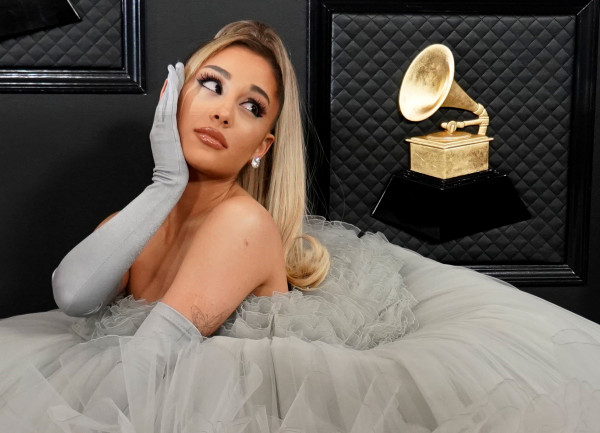Ariana Grande's New Single 'Yes, and?' Claps Back at Homewrecker Rumors

Ariana Grande, the pop sensation known for her chart-topping hits and distinctive voice, has once again captured the public's attention, but this time through her latest single "Yes, and?" The track is more than just a new addition to her discography; it's a direct response to the homewrecker allegations that have been swirling around her since last year.
After a hiatus from music to focus on her acting career, notably starring in the upcoming film adaptation of the musical "Wicked," Grande has returned to the music scene. Her fans, eagerly awaiting new material since her 2020 album "Positions," were greeted with "Yes, and?" which marks the beginning of a new musical chapter for the artist.
Grande collaborated with renowned producers Max Martin and Ilya Salmanzadeh in New York for the making of her upcoming album, but it's the content of "Yes, and?" that's stirring up conversations. The song, drawing inspiration from Madonna's "Vogue," addresses the rumors and accusations about her relationship with Ethan Slater, her "Wicked" co-star. The lyrics are a candid reflection of Grande's feelings towards the public's scrutiny of her personal life.
"In case you haven't noticed / Well, everybody's tired," she sings, expressing her exhaustion with the constant attention and judgment. "Now I'm so done with caring/ What you think, no I won't hide/ Underneath your own projections/ Or change my most authentic life," the lyrics continue, highlighting her determination to live authentically despite public opinion.
One of the most talked-about lines in the song is, "Don't comment on my body, do not reply/ Your business is yours and mine is mine/ Why do you care so much whose d**k I ride." This line, in particular, is a bold rebuttal to the ongoing rumors about her personal life, including the accusation of cheating on her ex-husband, Dalton Gomez, with Slater, who was also married at the time. Sources close to the couple have refuted these claims, stating that both marriages had ended before Grande and Slater began their romantic relationship.
The song has elicited a mix of reactions from netizens, ranging from support to criticism. Some fans have expressed pride and excitement, with comments like, "She's ending [people] this era," while others have voiced their disappointment and disapproval, calling her actions "embarrassing" and "shameless."
Grande's relationship with Slater has been a topic of intense public interest, and "Yes, and?" seems to be her way of addressing the controversy head-on. Lilly Jay, Slater's ex-wife, reportedly referred to Grande as "the story, really. Not a girl's girl. My family is just collateral damage," adding another layer to the ongoing narrative.
Ariana Grande's "Yes, and?" is more than a song; it's a statement. It reflects the modern celebrity's struggle with public perception, privacy, and the right to personal agency. In an age where every aspect of a public figure's life is scrutinized and debated, Grande's track stands as a bold assertion of her own narrative, challenging the boundaries between her public persona and personal life. As the song garners attention and reactions, it underscores the complex relationship between celebrities and their audience in the digital era, where personal affairs often become public spectacle.














